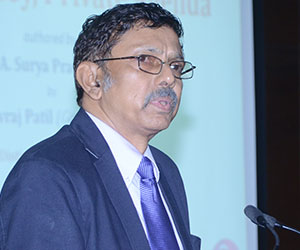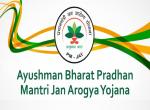The former Lok Sabha Speaker Mr. Purno Sangma has recently flagged some weighty issues which are extremely pertinent in the context of the crisis of governance in India, the declining influence of national parties, the decay of institutions, the fractious nature of coalitions and the precipitous fall in the prestige of the office of prime minister.
Some of these issues figure in his book A Life in Politics, which was released by the Vice-President Mr. Hamid Ansari on April 10. They have also been dealt with in a more elaborate manner in a lecture he delivered a fortnight ago at the VIF on ‘The Functioning of Parliamentary Democracy in India’. All these issues are inter-related. With the people opting for diverse political choices across the country, the two national parties that are at the core of the two main coalitions have got weakened. They are now facing greater pressure from regional players within their coalitions and outside. This in turn has injected instability into the coalitions and produced a crisis of governance. The ruling United Progressive Alliance at the Centre is now a pale shadow of the sturdy coalition that ruled this country between 2004-09 and the prime minister no longer exercises the power and authority that he did some years ago. For a politician like Mr. Sangma who has a strong nationalist streak and a desire to pool political and intellectual resources available in the country to try and stem the rot, this is the time to speak up and to press for action. He also offers some out-of-the-box prescriptions that could, especially in a deteriorating social and political environment, gain ground.
The weakening of the office of prime minister is on top of Mr. Sangma’s agenda. He is very clear that the prime minister must be a member of the Lok Sabha – a person who is directly elected by the people to the House. He does not favour Rajya Sabha members becoming prime ministers, because when that happens the authority and legitimacy of the office stands weakened and the prime minister remains beholden either to the leader of his party or to the leaders of a coalition who have together chosen to install him. Mr. Sangma says that under the Constitution, the Union Cabinet headed by the prime minister can survive in office only so long as it commands the support of the majority in the Lok Sabha. Therefore, it makes sense to have a prime minister who is a member of that House. Also, is it not absurd to have a prime minister who cannot vote on behalf of his government in the Lok Sabha!
In the preface to his book A Life in Politics, which is a collection of his speeches, Mr. Sangma dwells on the decline of institutions. He says: “Our institutions are in a state of decay. I am particularly worried about the institution of prime minister. I strongly feel that the prime minister being subjugated by an extra-constitutional `super’ authority is a dangerous precedent. Without any personal bias, I also feel that since India is the largest democracy, it would be in the fitness of things if the prime minister is elected by the House from members of the Lok Sabha. We should also start thinking and debating the desirability and possibility of electing the prime minister directly by the people. With a population of more than 1.2 billion people, India is capable enough of producing an able prime minister”.
Mr. Sangma elaborated on this theme at the VIF lecture on March 31. Over the last 16 years, there have been several instances when the Lok Sabha has failed to throw up a prime minister, he said. In 1996, a chief minister (Mr. Deve Gowda) was chosen for that office. In 1997, it was a member of the Upper House (Mr. Gurjal) and again from 2004 onwards (Mr. Manmohan Singh). During these periods, no member of the Lok Sabha was considered to be qualified for the job. He feels so strongly about it that he says the Constitution should be amended to achieve this objective.
As regards no-confidence motions, Mr. Sangma suggests that we adopt the German system of a constructive vote of no-confidence, meaning that the Lok Sabha can vote out a prime minister only when it has a successor in place. “We can perhaps consider the feasibility of adopting the German model of constitutional/legal provisions for constructive Votes of No Confidence. Under this model, the parliament may express its lack of confidence in the head of government only by electing a successor by the vote of a majority of Members and requesting the President for the appointment of the successor”.
Next, Mr .Sangma talks of coalition politics and federalism. In his view, the functional efficiency of a coalition government will largely depend on whether or not the coalition has put in place coordination mechanisms to “manage” contradictions. He says governance through coalition arrangements has more or less become the order of the day in the multi party system. “In the current (15th) Lok Sabha, forty political parties have their presence. As of now, the present UPA II coalition consists of 11 parties and is supported from outside by 9 parties. Running the government by coalition formations like this is like running a handicapped race. The government gets to be hamstrung in taking effective policy/reform measures”.
Mr. Sangma says coalition partners have their regional, local and ideological agendas which they are often unable to harmonize with the overall coalition programme. While the Government tries to ventilate its helplessness by referring to "coalition compulsions," the constituent partners complain of violation of "coalition dharma" by the government. The success of a coalition will therefore depend on what late Prime Minister V.P. Singh characterized as "management of contradictions". This is feasible only if coordination mechanisms are perfected and made functional within a ruling coalition.
Following the recent elections to five state assemblies, which saw a further fall in the vote share of the Congress and the Bharatiya Janata Party, especially in Uttar Pradesh, the regional parties have got further emboldened. The mushroom growth of regional parties has inflicted considerable damage on governance and encouraged the politics of blackmail. How does one resolve this? Mr. Sangma says that the idea that only national political parties should be allowed to contest parliamentary elections, could be explored.
Even more significant is his view on what the national parties should do in the present circumstances. The biggest problem right now is that there is a crisis of leadership. India no longer has an acceptable national leader and the two main national parties are on the decline. The plight of the Congress and the BJP is a matter of concern from a national point of view; he says and hopes that they will become stronger. Meanwhile, there could be a “temporary solution” – the Congress and BJP agreeing to share power and to provide a national government.
Mr. Sangma also focuses on two other issues which are generic in nature. The present electoral system – the-First-Past-the-Post system - has its flaws. In many instances, because of the multiplicity of parties and low voting, candidates who have polled the highest votes but have lost their deposits are declared elected. This system needs a fresh look. Compulsory voting may resolve this problem, but this must be implemented alongside the demand for voters to have the right to reject all candidates, if they wish to.
A clutch of bold ideas from a former Speaker of the Lok Sabha, among them: a power sharing arrangement between the Congress and the BJP to shake off “political blackmailers” and whimsical coalition partners; a prime minister who is directly elected by the Lok Sabha or the people; a constructive vote of no-confidence; institutionalised arrangements for coalition management; compulsory voting alongside the right to reject all candidates. Any takers?
Author is Senior Fellow at Vivekananda International Foundation
Published Date: 11th April, 2012










Post new comment